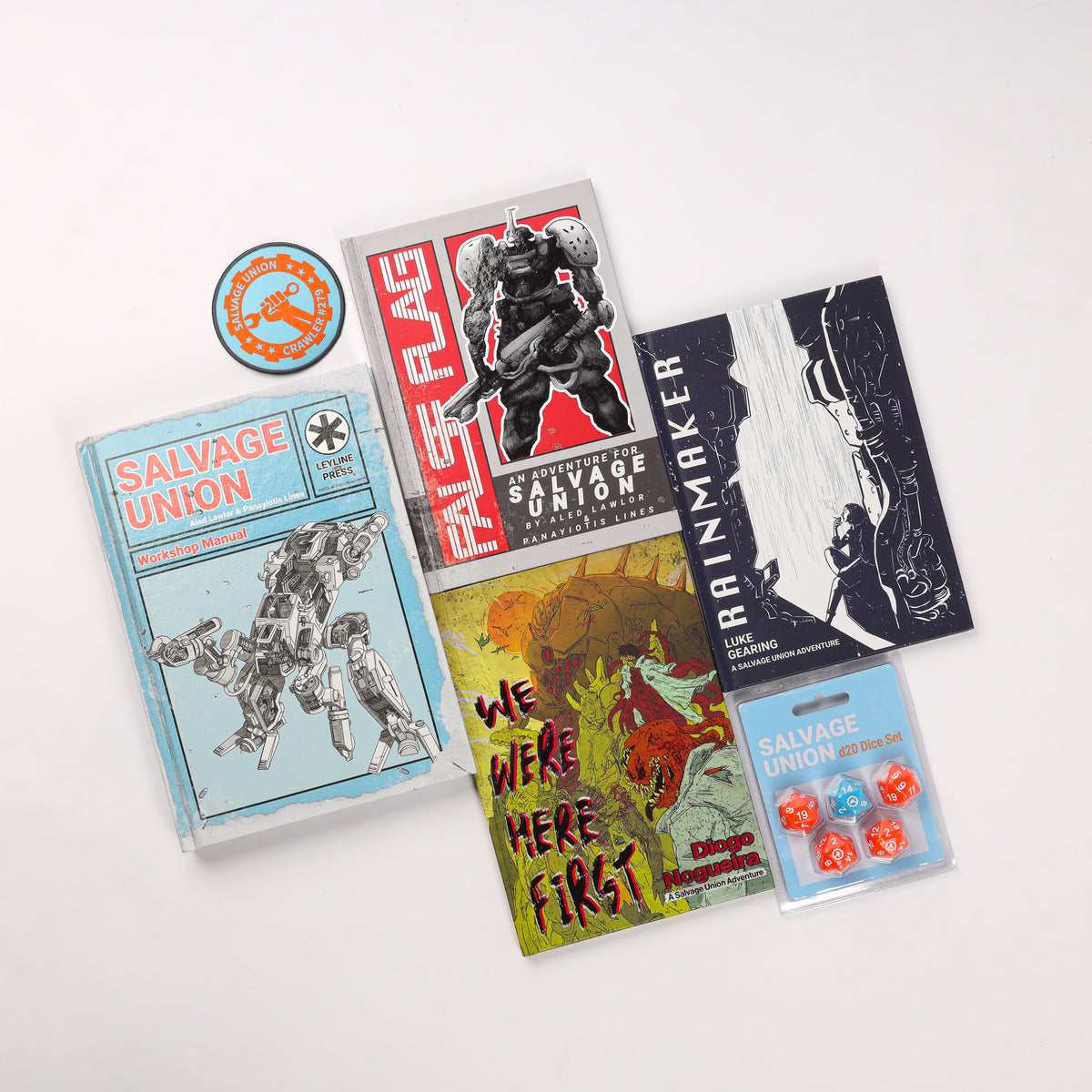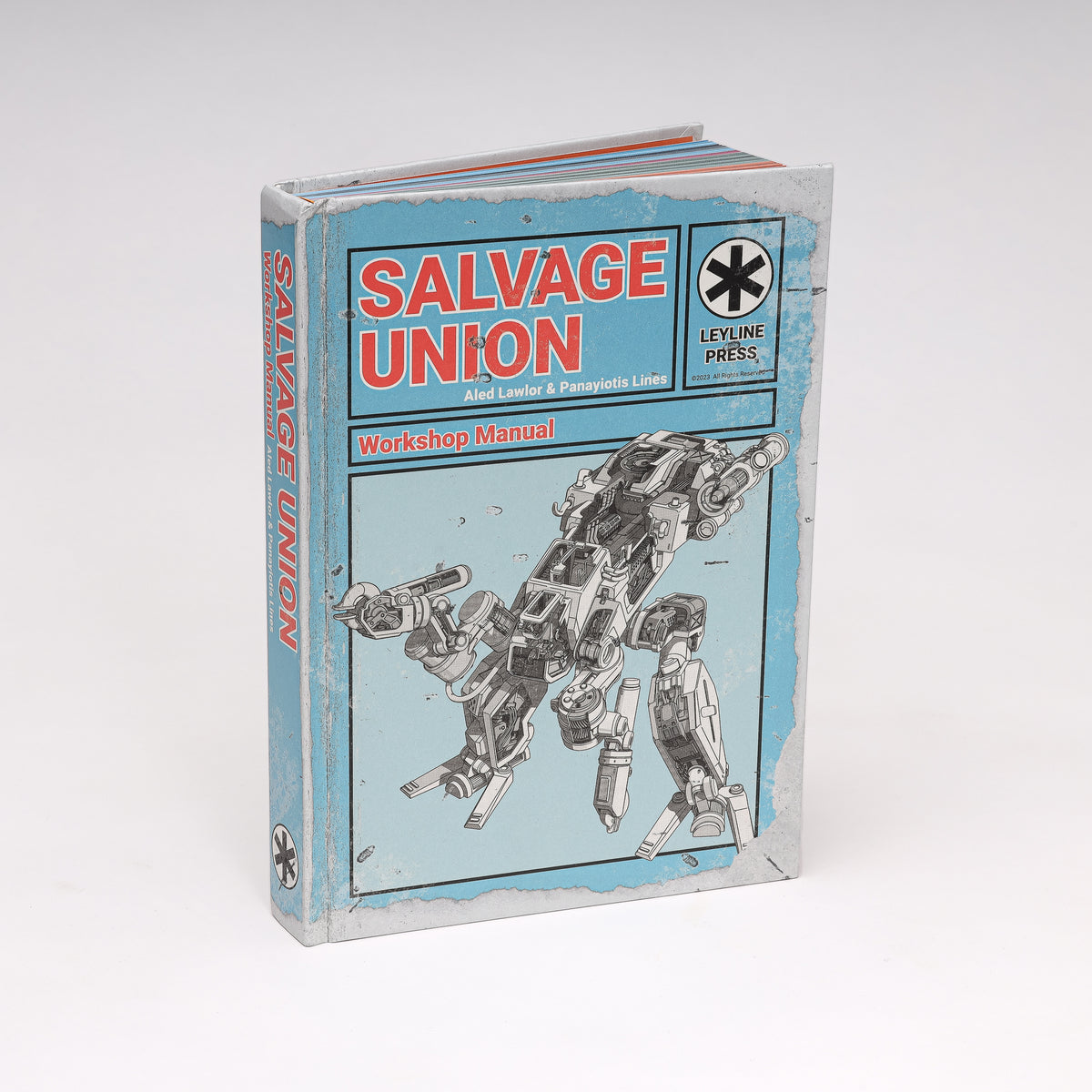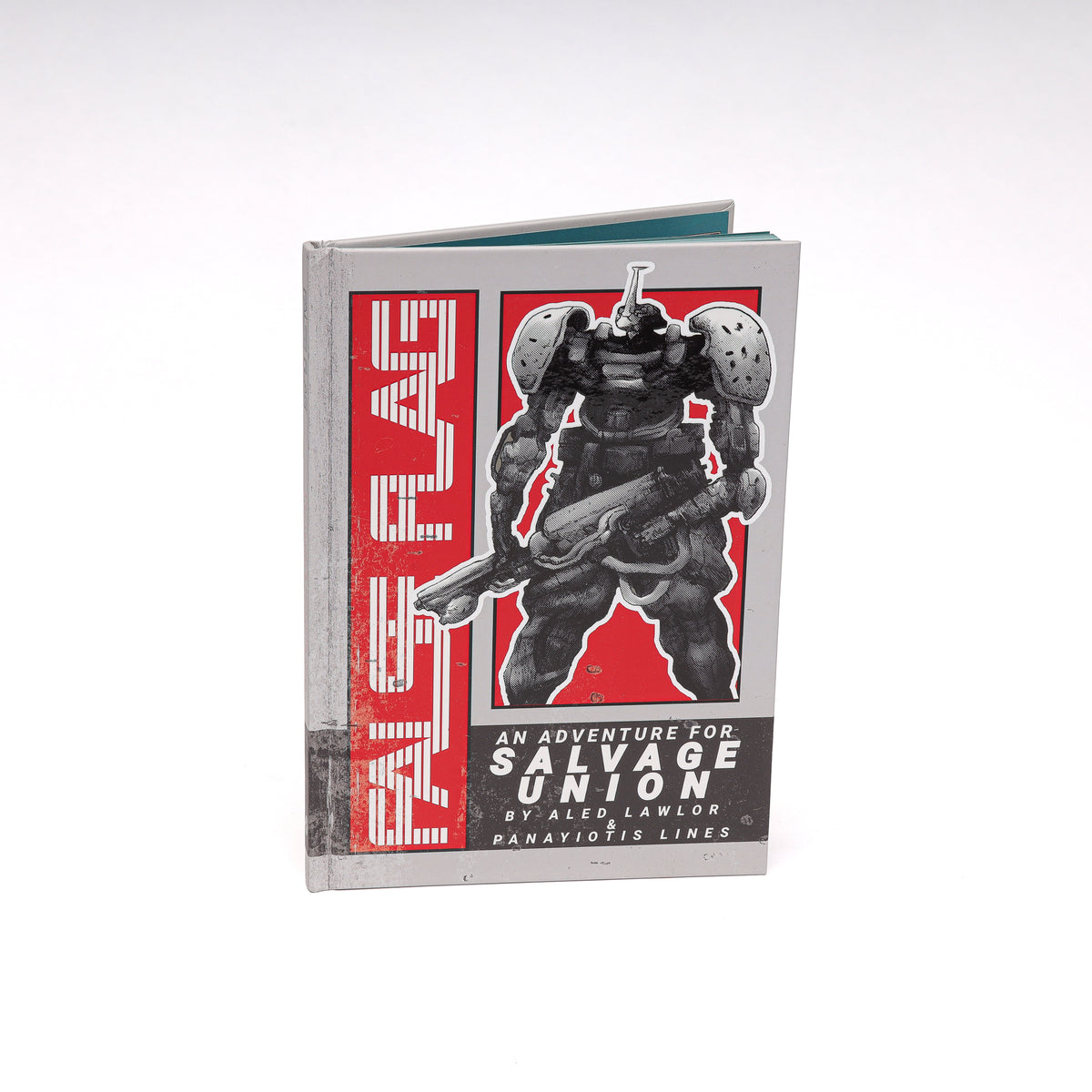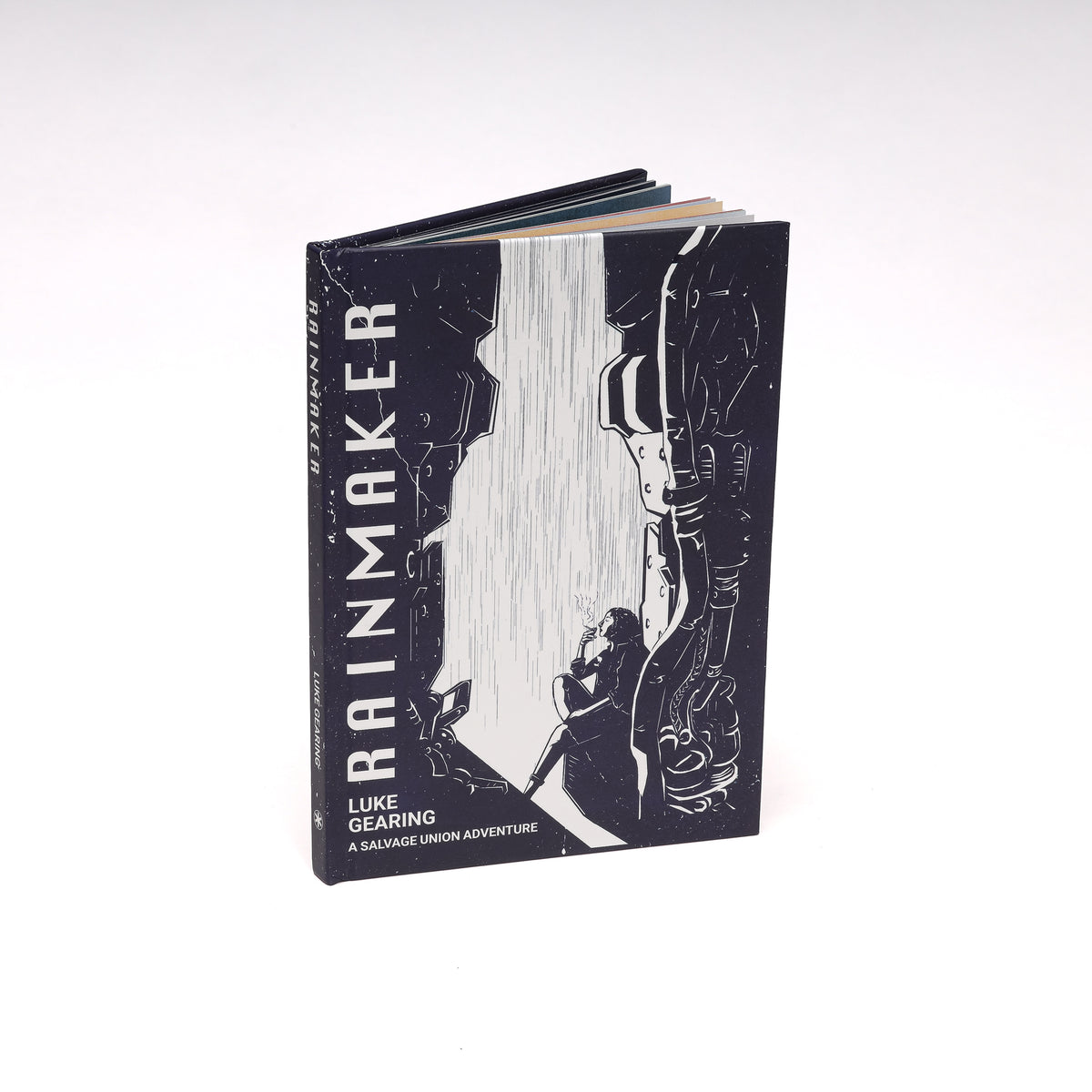In our last article we explored why skill systems and modifiers didn’t work for Salvage Union.
One of the main reasons people want to have skill systems and modifiers in a tabletop roleplaying game is because of niche protection.
Players within a tabletop roleplaying game want to feel that their character is good within their defined role. The player who picks a melee combat focussed class wants to feel like their character is more apt in melee combat compared to the character who has picked a stealth based class. That stealth based player wants to feel like their character excels at sneaking. A simple way of portraying this in a game is to give the melee combat character a +5 bonus to melee combat and the stealth character a +5 bonus to stealth.

However without any form of modifiers or skills how do you enable niche protection in a game? Salvage Union does have a class based system where players have a choice between different Pilot Classes including the likes of the Soldier, Scout, Hacker and Hauler.
This leads to the same quandary as above, the player who picks the Soldier wants to be more apt at ‘Soldier’ based things like combat whilst the player who picks the Scout wants to be more apt at the likes of stealth and scouting. If the Scout was identically good at combat as the Soldier it would almost obsolete the point of having a class based system.
Whilst going classless could be an option classes are still important in providing a sense of identity and structure for the player and frames the decisions and style of play. It also narrows down player options and stops the analysis paralysis of having an entirely freeform, classless system. We want want Salvage Union to be quick, easy and accessible to play which a class based system helps support.

Salvage Union approaches niche protection through its ability system which derives from Quest, the game engine that it runs on. Each Pilot Class has a set of abilities which they can choose from which have a variety of effects from abilities they can trigger in play to permanent bonuses and boons they receive.
For example the Soldier has unique access to the ‘Stims’ ability which allows them to push themselves beyond their normal means and act multiple times in a turn. This effectively lets them attack multiple times, breaking the action economy and greatly increasing their combat output. This makes them more effective in combat than other classes but through an ability they can uniquely activate.

Likewise the Scout gets a unique tracking ability which allows them to recognise tracks and what type of creature or mech left them and the direction they were heading in. Whilst every class in the game can try to analyse and follow tracks, the Scout can do so instantly by expending their action point resource without having to risk a dice roll.

One negative side to niche protection is that it can discourage players from doing things within the game because they don’t feel their character is suited for it. A player might have an interesting plan on how to infiltrate an enemy compound in a game but realise because their character has a -1 to their stealth skill that it wouldn’t be worth attempting.
We wanted Salvage Union to be a more freeform and open experience where players could all broadly contribute to the game and scenes within it. Niche protection through abilities has the benefit of still encouraging players towards a broad range of actions in the game whilst also given them a set of unique tools only they have access to.
Another means of niche protection we've included in the game is through equipment.
The Hacker for example has access to the 'Hacking Kit' which enables them the ability to hack mechs, computers and systems. Other classes don't gain access to the Hacking Kit and even if they could can't use it.

This in conjunction with a set of 'hacking' based abilities lets the Hacker feel protected in the role by letting them be the primary class that can 'hack.' Salvage Union does have some ways in which non-hacking based classes can perform 'hacks' but they'll never have the full range of abilities the Hacker gets access to and require far more expensive and specialised equipment to allow them to do so. Each class in this way gets access to unique tools which allow them to excel in their defined role such as the Engineers Portable Arc Welder or the Scout's high-tech Camouflage Suit.
A final way in which we enable niche protection is through strong narrative framing. Whilst not directly mechanical each class having a strong identity in the game leans players towards playing them in the way they're described. Players who pick the soldier will naturally lean towards doing more 'soldiery' stuff whilst players who pick the Hacker are more prone to want to hack things. It's always easy as an RPG designer to get a little too stuck in the mechanics and forget how important roleplay is to the experience and how players will want to engage with a character in a way that makes sense and respect the narrative niches you've designed for them.
As we develop Salvage Union and broaden out the list of core abilities, classes and equipment we find that each class has its own unique niche through their abilities, tools and narrative. This provides them a variety of ways to change the direction of scenes and situations in a unique way to them. Players however still have the freedom to come up with ideas and engage in the game without feeling too restricted by their class choices which makes for a healthy balance.

Interested in playing Salvage Union?
Salvage Union is now available to buy here.
You can download the free QuickStart here - https://leyline.press/products/salvage-union-beta-quickstart-digital-edition-pdf
You can pre-order Salvage Union here and immediately get the Core Book PDF.
You can follow the Salvage Union Kickstarter here.
You can join the Salvage Union Discord here - https://discord.gg/gmM6jTT8qm
Follow Salvage Union on Twitter - @salvageunion
Follow Salvage Union on Instagram - @salvageunion
Subscribe to the Leyline Press newsletter here to receive updates Salvage Union and our other games.






0 comments